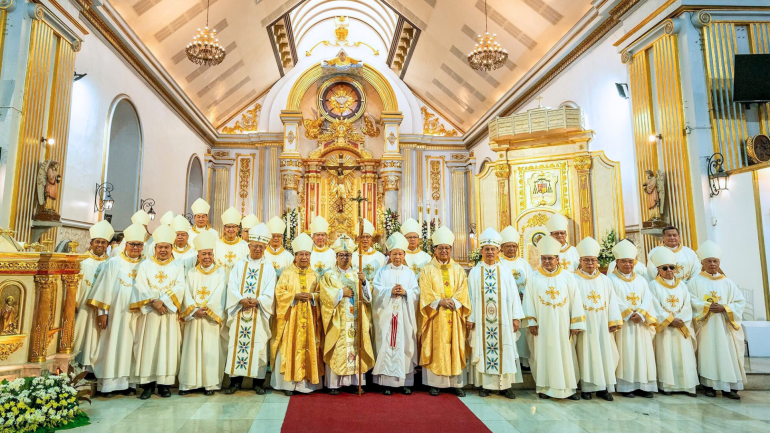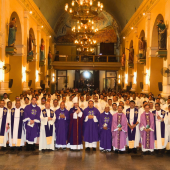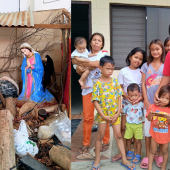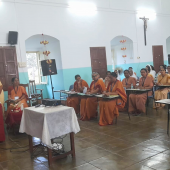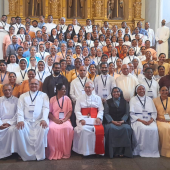We Are Not Dictators but Pastors, Filipino Prelate Reminds Fellow Bishops
A senior Filipino prelate reminded his fellow bishops that they are called not to be dictators but to be pastors who love and serve their flock.
“We are not walls that divide, but bridges that connect one another and together to God,” said Archbishop Jose Palma, apostolic administrator of Cebu.
Archbishop Palma delivered the homily during the episcopal consecration of Bishop Glenn Corsiga on July 29.
Reflecting on Bishop Corsiga’s episcopal motto, Amare et Servire (“To love and to serve”), the archbishop emphasized that genuine love is demonstrated through selfless service.
“When service is born out of love, then Christian communities thrive and blossom. When love and service coexist in Christian communities, then though many, we are still one body in Christ,” Archbishop Palma said.
He urged the new bishop to allow the Holy Spirit to nourish his ministry of love and service, fostering unity within the Diocese of Ipil, the ecclesiastical territory entrusted to his care.
“As you live out amare et servire in your ministry, let God's love, poured into your heart through the Holy Spirit, be the uniting principle in your community,” the archbishop said. “Through the Spirit, you will truly open your heart for others, and theirs for yours, and open each other’s hearts to one another,” he added.
The 60-year-old Bishop Corsiga was consecrated at the Saint Catherine of Alexandria Cathedral in his home Diocese of Dumaguete.
Zamboanga Archbishop Julius Tonel served as the principal consecrator, with Archbishop John Du of Palo and Bishop Julito Cortes of Dumaguete as co-consecrators.
Ordained a priest for the Diocese of Dumaguete in 1993, Bishop Corsiga was serving as its vicar general at the time of his episcopal appointment.
The Diocese of Ipil, located in the province of Zamboanga Sibugay in southern Philippines, has a population of 778,111 as of 2024. It comprises diverse ethnic groups, including the Badjao, Tausug, and Maranao.
Radio Veritas Asia (RVA), a media platform of the Catholic Church, aims to share Christ. RVA started in 1969 as a continental Catholic radio station to serve Asian countries in their respective local language, thus earning the tag “the Voice of Asian Christianity.” Responding to the emerging context, RVA embraced media platforms to connect with the global Asian audience via its 21 language websites and various social media platforms.





